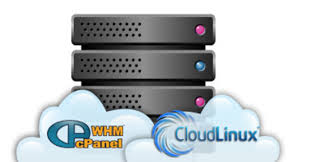
A sudden increase in load spikes due to high traffic into the websites and slow servers are some of the major problems that users and system administrators face every day. Cloud Linux, released in 2010, is a technology that most web hosting companies now adopt to counter these threats. This operating system is interchangeable with CentOS or can be built on top of the existing OS and is mainly incorporated by web hosting providers relying on cPanel as the control panel.
This blog discusses the features of Cloud Linux.
1) Limits the resource usage for a single user – LVE Manager
Cloud Linux incorporates a kernel level technology, which is used to set the resource limit for each user or tenant in the server. Lightweight Virtualized Environment (LVE) allows the users to set limits for CPU, IO, memory, the number of processes, entry processes and Inode limits. This can prevent potential abuse and each user can be insulated from the bad neighbour effect. Here all the parameters mentioned can be fine-tuned and controlled effectively.
Cloud Linux has developed this plugin especially for cPanel/WHM based servers, making it very user-friendly. The standalone server users can set these limits from the WHM panel itself rather than accessing the server via SSH.
2) Control Panel and Software Compatibility
Cloud Linux is compatible with all major control panels and also with CentOS and RHEL software.
Control panels like cPanel, Parallels Plesk Panel, DirectAdmin, ISP Manager, R1Soft, Webmin, LiteSpeed, Ksplice etc., support Cloud Linux.
3) PHP Selector
With PHP selector, Cloud Linux becomes very user-friendly. If the PHP version in the server is not compatible with the PHP codes for a single domain, then it can lead to errors on the website. This problem can be sorted out with the help of a PHP selector. PHP selector gives users the flexibility to choose particular PHP version for their cPanel account. The supported versions in the selector include versions 5.2, 5.3, 5.4, 5.5 and 4.4.
4) Mysql Governor
A large number of Mysql queries can really slow down the servers. So it is important to keep the MySQL usage at bay. Mysql Governor can find the MySQL abusers and also kill slow SELECT queries. Mysql Governor supports Mysql versions from 5.1- 5.6 along with MariaDB 5.x and 10.x support. The Mysql governor will monitor the CPU and IO usage of each user in real time thereby throttling the heavy users.
5) CageFS
CageFS is a free software that comes with Cloud Linux OS. CageFS is a set of tools that captures each user/customer into a cage. As a result, each user has owned functional CageFS without any adjustments of user- scripts. As it’s a virtualized file system, CageFS prevents users from viewing configuration files and other private information. Hence, each user enjoys their own privacy and is not be able to detect the existence of other users in the server.
Apart from these features, Python Selector, Ruby Selector, Optimum Cache software and Mod_Isapi are some of the added advantages of Cloud Linux OS. Cloud Linux also provides the feature of Kernel Care where in reboot less Kernel updates are possible. So for users who are concerned about the website speed, Cloud Linux is the best option available for you!!!



